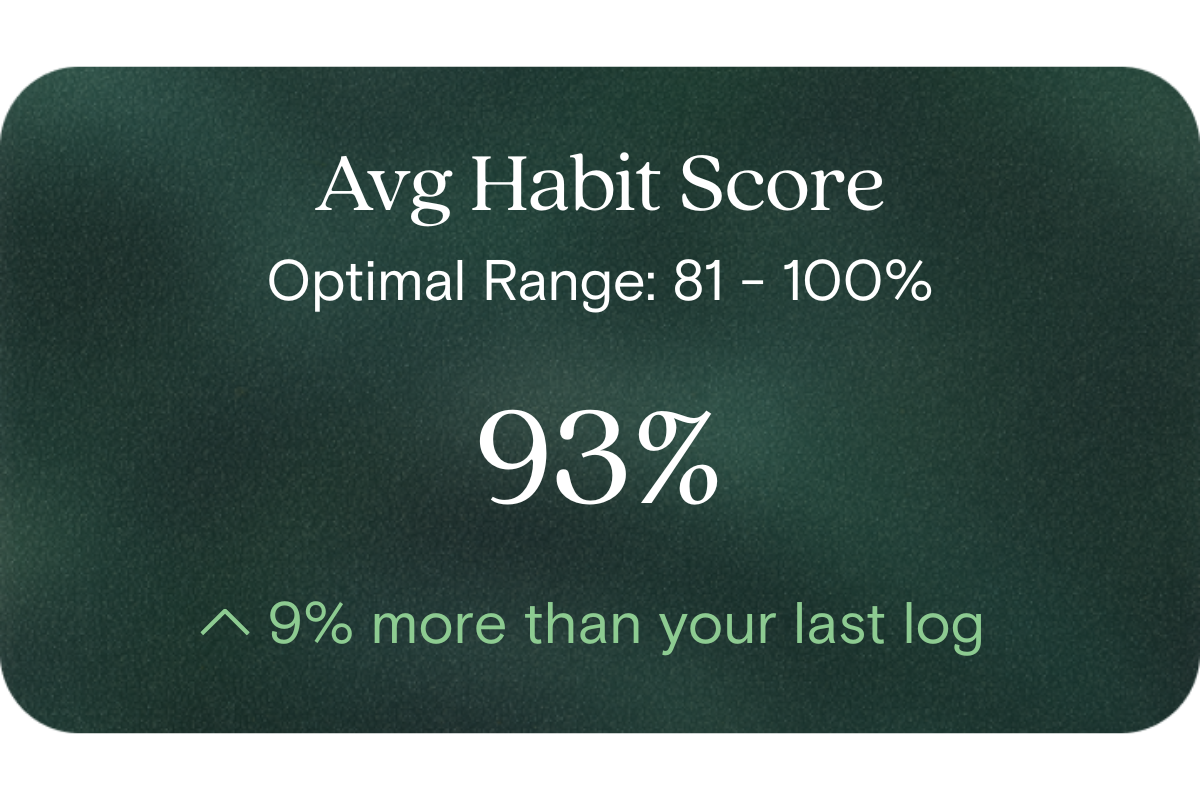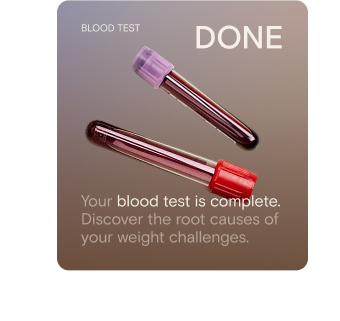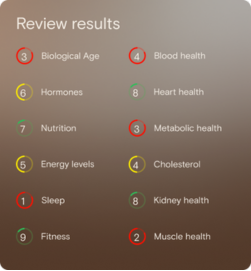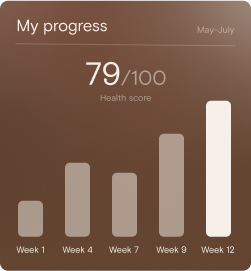What is Avg Habit Score?
The Avg Habit Score (%) measures your average adherence to six core lifestyle habits over the past five weeks. It helps assess how consistent and balanced your daily routines are over time.
Why does it matter for long-term health and wellbeing?
Stable, positive habits support energy balance, mental clarity, and overall wellbeing. Monitoring your score gives insight into how your lifestyle patterns contribute to better long-term health and performance.
What’s an optimal level of Avg Habit Score?
An optimal range is 81–100%, indicating excellent consistency. Typical Australian lab reference ranges are:
- 20% = 0–20% (Pay attention)
- 40% = 21–40% (Sub-optimal)
- 60% = 41–60% (Good)
- 80% = 61–80% (Optimal)
- 100% = 81–100% (Excellent)
What influences Avg Habit Score levels?
Daily routines such as exercise frequency, sleep quality, meal timing, hydration, and recovery play a major role. Environmental changes, stress, or travel can also affect habit consistency.
What does it mean if Avg Habit Score is outside the optimal range?
Scores below 81% suggest that one or more lifestyle habits may have been inconsistent. This is an opportunity to identify what’s changed and reintroduce structure or support to get back on track.
How can I support healthy Avg Habit Score levels?
Prioritise small, achievable goals each day. Keep a consistent sleep schedule, maintain balanced meals, and set realistic workout and mindfulness targets. Using digital tools like wearables or Vively’s coaching insights can help reinforce accountability.
This information is provided for general health and wellness purposes only and does not replace medical advice.
References
- Australian Institute of Health and Welfare (AIHW). Behaviours & risk factors. Updated 25 March 2024.
- Department of Health and Aged Care. National Preventive Health Strategy 2021–2030. Overview page (12 Dec 2021) and full PDF
- Lally, P., van Jaarsveld, C. H. M., Potts, H. W. W., & Wardle, J. (2010). Modelling habit formation in the real world. European Journal of Social Psychology, 40(6), 998–1009.
- O’Connor, D. B., et al. (2020). The future of health behaviour change interventions. British Journal of Health Psychology (special issue editorial). University of Leeds White Rose ePrints PDF.




















.png)


.svg)

